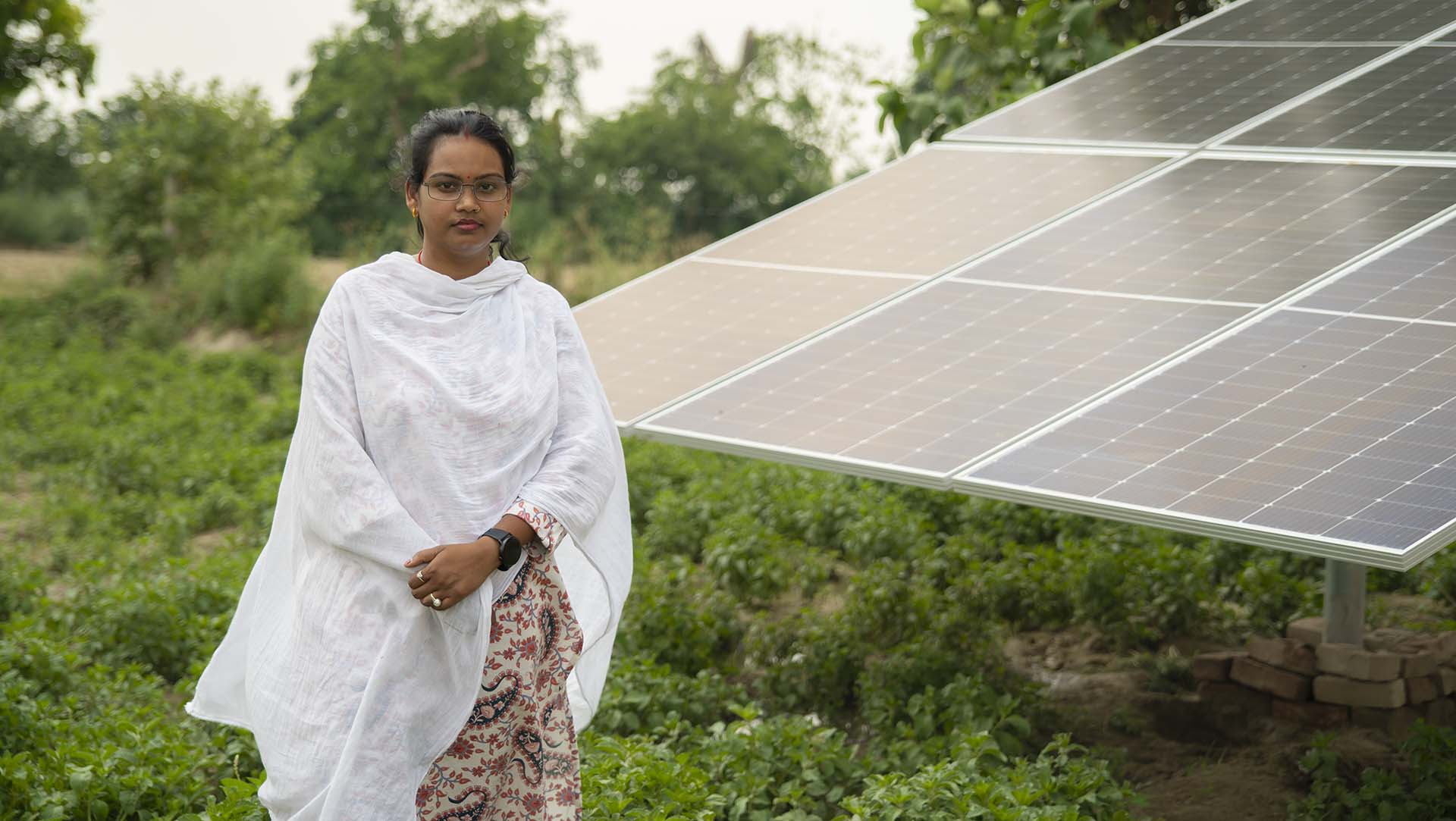The Social Side of Renewable Energy: Why Women Anchor an Equitable Energy Transition

As India celebrates the Akshay Urja Diwas, the spotlight often falls on megawatts added, and technology costs reduced. And the numbers are indeed impressive. The global solar market grew by nearly 600 GW in 2024, taking worldwide installed capacity to 2.2 TW, a significant 33% jump in a single year. India contributed significantly, rebounding with 30.7 GW installed in 2024, a 145% rise over the previous year, reclaiming its place as the world’s third-largest solar market (SolarPower Europe, 2025). These gains are underpinned by reducing technology costs: solar module prices in India have dropped by over 80% since 2013, falling from nearly ₹80,000 per kW to just ₹38,000–₹45,000 (MNRE, 2024). Policies like the PM Surya Ghar Muft Bijli Yojana and PM KUSUM have further accelerated adoption.
Yet behind the statistics lies a deeper question: who sustains this transition, and who ensures it is equitable and circular? That is where women step in to transform renewable energy from a technological revolution into a social one.
From Access to Agency: DEWEE
Through the Decentralized Energy for Women’s Economic Empowerment (DEWEE) project in Uttar Pradesh, the Uttar Pradesh State Rural Livelihoods Mission (UPSRLM) is energizing the rural women-led enterprises by enabling them to adopt decentralized renewable energy systems. From water pumps and food-processing units to cold storage, dryers, and freezers, more than 4,000 KW of solar solutions are already installed across women-led businesses. These innovations, supported by PCI India, GEAPP, HSBC, Gates Foundation and Prerna OJAS, are not futuristic pilots; they are operating today in flour mills, dairy units, tailoring shops, agriculture pumps, and beauty parlours, bringing income, dignity, and climate resilience to rural women.
Sustaining the Transition: Surya Sakhi
Adoption is only the first step. For renewable energy to truly transform rural India, it must be serviced, repaired, and sustained locally. This is the role of the Surya Sakhi initiative, supported by the Uttar Pradesh State Rural Livelihoods Mission.
The government plans to deploy approximately 57,000 Surya Sakhis, one in each Gram Panchayat, as women solar entrepreneurs. Trained and supported by Prerna OJAS, a community-owned enterprise, and PCI India, these women are responsible for installations, after-sales services, and household awareness. They also address the critical end-of-life challenge by collecting expired solar installations, batteries, lamps, and solar devices and directing them into formal recycling systems.
In doing so, Surya Sakhis bridge the trust gap at the grassroots, ensuring technology is not abandoned but becomes an enduring part of rural life. Every megawatt of solar installed in India is estimated to generate up to 24 local jobs in installation and maintenance (IRENA, 2023), and women like Surya Sakhis are ensuring these jobs are equitable. Already, 1,000 women have been selected, and 400 solar shops are up and running, backed by loans from the Mukhyamantri Udyami Yojana.
Closing the Loop: Naari Circuit
The renewable transition also brings a waste challenge. By 2030, India is projected to generate more than 200,000 tonnes of solar e-waste annually (IRENA-IEA PVPS, 2022). PCI India’s Naari Circuit project directly addresses this by training women in Bengaluru and beyond to enter the male-dominated e-waste sector. These women now collect, refurbish, and recycle electronic wastes (including solar
devices), linking grassroots work with formal recycling value chains. In doing so, they create dignified green jobs while reducing digital pollution.
A Renewable Economy That is Circular and Inclusive
Globally, women make up 32% of the renewable energy workforce, compared to just 22% in fossil fuels (IRENA, 2022). India must build on this momentum, not just to meet its 500 GW clean energy target by 2030, but to ensure that the benefits of this transition are distributed equitably.
From DEWEE’s adoption of decentralized solar, to Surya Sakhis sustaining and servicing installations, to Naari Circuit closing the loop through recycling, PCI India’s work shows how women can anchor every stage of the renewable energy life cycle.
On this Akshay Urja Diwas, let us remind ourselves: renewable energy is not only about terawatts installed or costs reduced. It is about whether the transition creates livelihoods, builds resilience, and sustains communities. Women are not just beneficiaries of this journey, they are its architects. The renewable circular economy of tomorrow will be greener, fairer, and stronger because of them.
Author: Shishir Kumar Singh, Director – Climate & Strategy, PCI India
